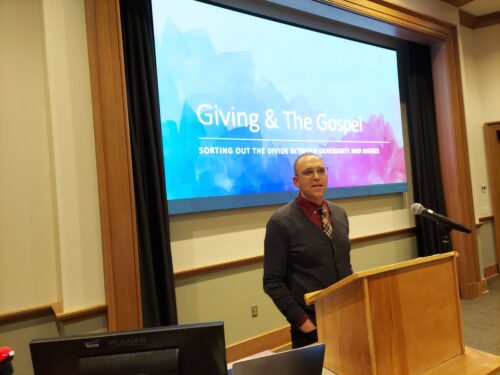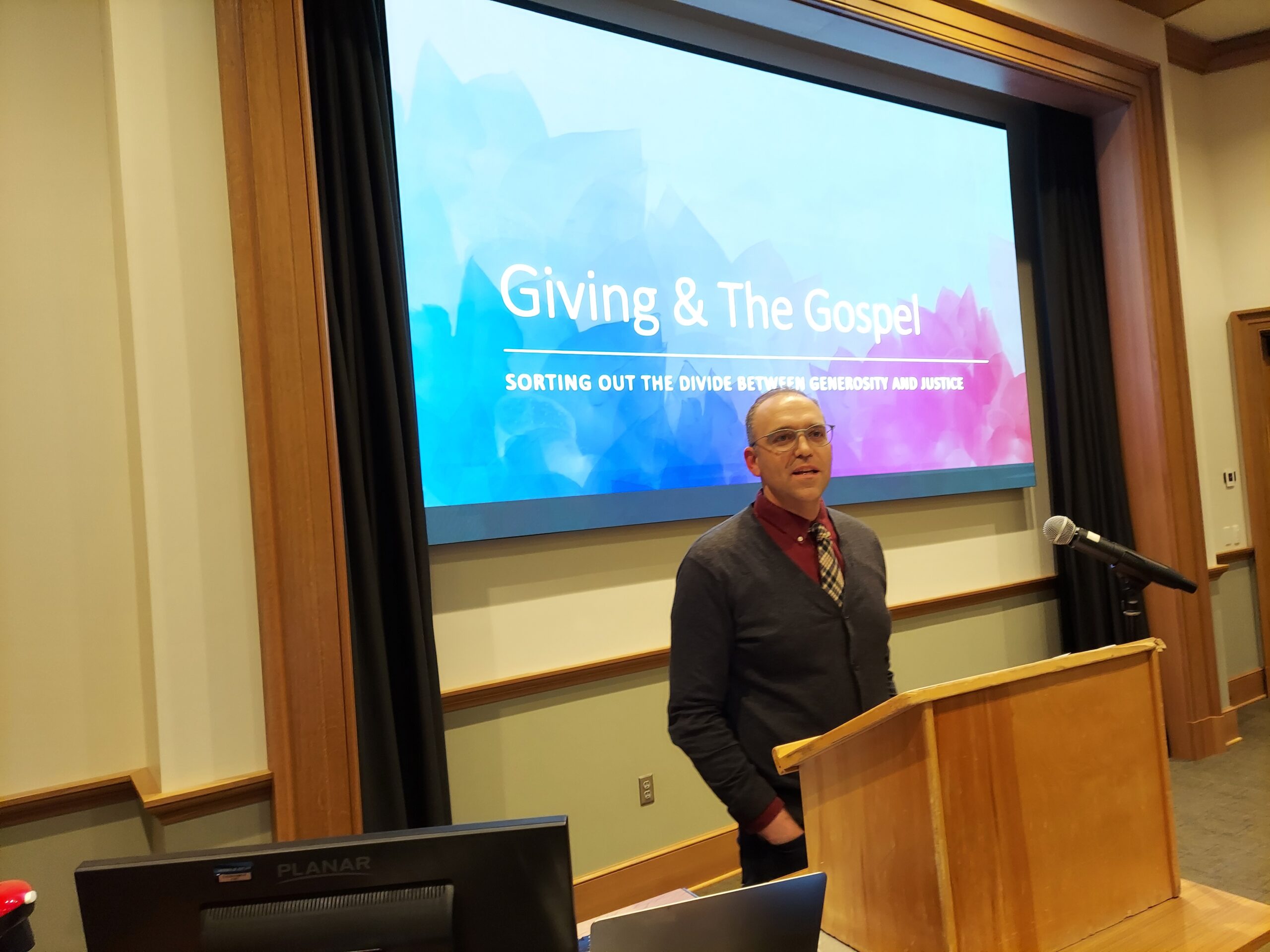Catholic Charities of Oregon came up in an April 13 evening lecture by Jordan Skornik, an adjunct professor of theology at the University of Portland.
“It’s not just about sharing but about interconnectedness, about welcoming people back in.” -Jordan Skornik on philanthropy
In a talk exploring wealth, philanthropy and the Gospel, Skornik cited the 90-year-old charitable organization as a key result of the church tradition that gave birth to contemporary not-for-profit organizations.
“It’s said that the Catholic Church is the godmother of modern nonprofits,” said Skornik, who also is executive director of a Portland clinic for those who can’t afford health care.
Skornik told an audience of 40 that organizations like Catholic Charities can do so much because religion is an important motivator for philanthropy.
“We know religion plays a big role in giving to good causes,” he told listeners. “And we know religious people give more.”

Jordan Skornik, a University of Portland professor and executive director of a nonprofit, speaks April 13 at the University of Portland. (Catholic Charities)
Skornik went on to explore the American philanthropic tradition, especially the paradox put forth by steel magnate Andrew Carnegie in the 1880s: Disparity in income between rich and poor is inevitable and even necessary for progress, Carnegie argued. At the same time, Carnegie wrote, the rich should give their money to causes that improve life for those who are poor.
Regarding the Gospel, Carnegie advised against imitating Christ’s first century life and instead suggested adapting Jesus’ way to a modern capitalist society.
In recent decades, views challenging Carnegie’s have emerged, said Skornik, a former research fellow for the Murdock Charitable Trust. For example, it’s become clear that when the rich see themselves as the saviors of the poor, that reinforces biases and weakens progress of those who are struggling. Catholic social teaching tries to overcome that dynamic, Skornik said. It’s better, he explained, to look at philanthropy as a joyful connection between the giver and receiver. Many modern philanthropists get this, Skornik said.
Skornik cited a recent trend in philanthropy toward giving money to agencies without conditions. Such unrestricted dollars can remove the power dynamic, he said.
But Skornik suggested that more work needs to be done to accentuate human justice, another part of Catholic social teaching. Straight charity can neglect the need to work for just systems, he noted. “It is very satisfying to watch a video of a kid’s rags to riches story. It is harder to ask why he was in rags in the first place.”
The Gospel of Luke, Skornik explained, in many ways suggests that generosity is not enough, and that justice is called for. Luke emphasized Jesus’ humble beginnings and gives prominence to Mary’s Magnificat, a song in which the mighty fall and the weak emerge on top. Luke includes several parables about the perils of wealth. And in the Sermon on the Plain, Jesus says plainly “Blessed are the poor,” as opposed to Matthew’s “Blessed are the poor in spirit.”
“In Luke’s Gospel, it’s not just about sharing but about interconnectedness, about welcoming people back in,” Skornik said.
Generosity still matters. Skornik insisted. But, he said, we all need to be sure that the inherent dignity of those with less money is recognized and that relationships are built via philanthropy.
